How Long Do Rabbits Live As Pets Outdoors Care Guide
Ok, so you are looking into how long do rabbits live as pets outdoors so you are likely thinking that indoor rabbits are not quite right for you! COTOSE because I do not think rabbits are the best indoor pets one for your house because they chew on everything and that is not something you can change.
And second, it is far more healthy for them to live outside because there are A LOT of dangerous things in your home that can kill your rabbits. Fabrics, carpet, flooring, drywall and so much more that if ingested will cause your rabbit MAJOR health issues.
Rabbits are not dogs and people are trying to keep them as such, I see so many people have problems these days and it makes me so sad to see people struggle with keeping domestic rabbits as pets.
So here is the quick answer to the question “how long do rabbits live as pets outdoors”: The same as indoor rabbits. But different breeds of rabbits live to be different ages.
The lifespan of a rabbit in the giant breeds tends to live to be 5 years on average and up to 7 years if you are lucky. These are breeds like Flemish giants, French Lops, And Checkered Giants. Which have a much shorter life than the smaller breeds like Dutch, holland lops, Netherland dwarf, or mini lops.
The small or dwarf rabbits can live as long as 10 years.
Tips To Help Your Rabbits Live Longer Outside
Now there are a few caveats as to how long the lifespan of a pet rabbit will be when living outdoors. You have to think about keeping them healthy and NOT running loose in the yard like wild rabbits. There are both diseases and predators that can cause health problems for your outdoor rabbits as well.
Now let me warn you that I have some very different thoughts and opinions than that of the typical mainstream media on rabbit care that are all backed up by over 25 years of rabbit-raising experience.
And no this is not “I’ve had 4 different rabbits over that time so that makes me an expert”…. I have raised rabbits as a show quality rabbit raiser for 20 of those 25 years and had 10+ rabbits at one time during all of those years.
I’ve seen what works and what doesn’t and I am sharing that with you.

Housing And Ventilation
Rabbits need to have shelter from the elements but they love cooler weather. 50 degrees is ideal for them so don’t feel bad when it gets colder. If you are wondering how they are handling the temperatures, pay attention to their body language. If they are laying out and relaxed you know they are feeling good. If they are bunched up in the corner and you see slight muscle movements then you know they are feeling cold.

They also need to be on flooring that allows for their waste to fall through the flooring. Solid flooring is extremely unhealthy for them. Even though it is really popular here is why it doesn’t work.
Why I Think Solid Floors Are Unhealthy
When a rabbit goes to the bathroom in a particular spot (which is normal for rabbit) the waste stays right where they are and gets stuck in its fur. But not only that it stays in the air close to where they are and can cause severe respiratory issues.
If they are living on solid floors they will literally be sitting with their waste and urine until you are able to clean it out. Even if you clean it every day it could be 8hrs or more before you are able to get it cleaned up.
Whereas a wire floor will allow the waste to fall immediately away from the rabbit and keep the humidity and ammonia away from their breathing area.
IMPORTANT! It takes maggots 24hrs to hatch. Rabbits naturally turn those little cubby holes that these hutches nowadays have into a toilet. If your rabbit uses that same area and there are fly eggs in the smallest pile of the mess they could end up with maggots attached to them!
This is why I am so against rabbits having a litter box or anything of the sort.
If you do not have a situation where your rabbit’s waste can fall to the ground at least get a hutch that has a litter tray that will catch the pee and poo so they are not sitting near it.

If Your Rabbit Is Bred Right Sore Hocks Should Not Be A Problem
Rabbits’ feet are their main weapons of defense. They are powerful and should be able to withstand heavy use. Your rabbits should have no issue living on a wire floor. If they do you can use a resting mat to give them a spot to keep their feet off the wire but these still don’t let the poo through the flooring quite as well.
Why Roaming In The Yard Is A Bad Idea
Fleas and other pests don’t care who the host is just so long as they have one. You don’t know what wild animal crossed your yard in the middle of the night and left a guest or two there for your pet rabbit to pick up.
On top of that, there are other parasites and other contagious diseases that your rabbit could pick up because you chose to let them on the ground. It’s simply not worth the risk to your rabbit’s health. You can let them walk on a cool patio or porch if you feel the need.
But my rabbits are NEVER on the ground for the reasons above.

Good Ventilation In Rabbit Housing Is Vital
I don’t hide the fact that my rabbits are not housed in a barn and even if we had one I wouldn’t use it. There are so many breeders I have come across that have major health issues in their rabbitry and the common denominator to me is the lack of ventilation.
My lean-to-style hutches with cages hanging inside work great. The rabbits have a three-sided shelter and I am able to put up tarps when the weather is bad. I have never lost a rabbit to respiratory issues with this setup and their production is always great as well. I rarely have breeding issues.
Adequate ventilation will determine whether or not the rabbit will be in good health and produce well. Inadequate ventilation makes the rabbits prone to a lot of common respiratory issues such as pneumonia or sniffles.
The number one way to eliminate these diseases or at the very least prevent them is through proper ventilation.
The ideal ventilation rate is a minimum of 10 total air changes in the housing area per hour. Of course, that is pretty difficult to track without state-of-the-art equipment. So what are you supposed to do? Do your best to provide them with the best options possible instead of closing them up tight in a structure with no real air circulation.

Proper Diet A Rabbits Nutritional Needs
First, let’s get to know a little bit about rabbit nutrition and what the right diet looks like. What exactly do they need? Good quality alfalfa pellets contain everything a rabbit needs nutritionally on a daily basis. On a feed tag that is either stamped on the side of the bag or sewn into the bag of rabbit pellets, you should see percentages at least in the ranges below.
- Protein 16%-18%
- Fat 2%-4%
- Fiber 20% or more.
Most rabbit rations contain an adequate amount of vitamins and minerals needed on a daily basis.
You will on occasion see rabbit raisers adding water-soluble vitamins and minerals to the rabbit’s fresh water. If you are at a county fair or show and you see that the water is colored then likely they have added something to their water.
This is not necessary on a daily basis unless the rabbits have been exposed to stress such as shows, or travel. Adding vitamins and minerals to the water should be done on an as-needed basis.
If you choose a feed that has all the basic requirements, feeding hey is not necessary for the health of your rabbits.
My Rabbitry Must Haves
My Rebuddle To Why People Think Rabbits Need Hay
There are two main reasons people think rabbits must have hay to survive and it’s honestly a hill they are willing to die on. But I am just as strong in my belief that they don’t need it if you are feeding them the right nutrition.
Reason number one is fiber and gut health meaning it keeps the rabbit’s digestive tract moving. Well, here’s the thing it’s the FIBER that keeps the rabbit’s gut moving not the hay itself. Their body doesn’t know where the fiber came from so long as they get it.
Free Farm Goal Planner!!!
➡️Get my proven system for choosing your farm goals so you don’t get burnt out.
The second argument is to keep their teeth short and ground down…. Um, have you seen how much rabbits chew on their living quarters? Rabbits are going to find what they need to chew on so they do not have overgrown teeth. Pellets are far stronger and stiffer of a consistency than hay is and rabbits will chew just as long on hay as they will on pellets doing just as well keeping a rabbit’s teeth short.
The risk is not worth the reward especially when there are other options to solve the problem.
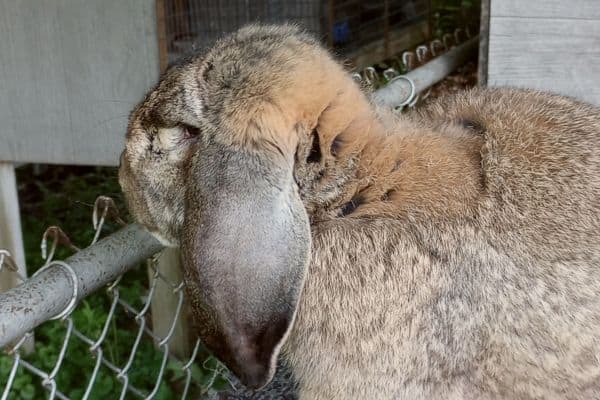
Why I Don’t Feed Hay
It’s not that I am against hay for the sake of being against it. My main concern with feeding hay is connected to the mold that can grow on hay so easily and you may not even know it. Something as simple as a humid day can cause moisture to get in the bale and there really is not much you can do about that.
“I love a sassy comment I got on Pinterest about this post where someone said something to the effect of you should store it better if the mold shows up.
Clearly, you have no experience with farm life. Barns are not 100% airtight and neither is your home for that matter. Your home can have high humidity on a hot summer day in July”
Mycotoxins produced from mold are deadly poisons that cause major health issues that are often fatal in rabbits.
Many people are shocked when I tell them I don’t feed hay to my rabbits. My decision to do so has mostly come from observations of other breeders and hearing of issues that they have experienced, such as issues with bloat and even the loss of most of their animals. The common theme in most if not all cases I heard about was that the breeders were feeding hay.
I can honestly say that I have never lost a rabbit to bloat and hay is not a part of their feeding routine. Like ever.
Rabbits have a very sensitive digestive system, if something goes wrong it will most often be fatal. In my opinion feeding, hay is optional. If you are feeding a good pellet your pet rabbit will get the healthy diet they need.

If you want to read more about why I don’t feed hay you can do so here. – Do Rabbits Need Hay? What I Do Instead That Works
Leafy Greens Should Be Treats Only
Feeding loads of timothy hay and other veggies are pushed to be fed to rabbits all the time but the issue with feeding more of those things instead of pellets is there is not enough protein in those foods to keep your rabbit healthy.
The protein level of “leafy greens” ie lettuce is no more than 3% protein. And most hay sold to you at a pet store is 10% protein if you are lucky. Even if the bag claims to be “high-quality grass hay” but doesn’t have the protein your rabbit needs they can’t live a long time on low protein.
If you are giving them those foods first and not the pellets they don’t have room to eat the full amount of nutrition they need. It’s like feeding a human doughnut before you give them steak and potatoes. You won’t have enough room for the good stuff.
Make sense?
Do Rabbits Need A Companion
The short answer is no. This idea that rabbits are social animals is ridiculous and brought about by mainstream media which push their own agenda and humanize animals instead of paying attention to how rabbits behave naturally.
Think about what you see rabbits doing in the wild. Female rabbits are seen with their babies for a short time. And two adult rabbits come together for you know what in the springtime. Even the wild European rabbits that live in colonies all have their own space within that colony.

Rabbits Will Fight
After a rabbit reaches sexual maturity both male and female rabbits will fight each other. Even litter mates that are left together too long will start to fight each other. I have had baby rabbits as young as 9 weeks old fight each other and cause damage.
I can not tell you how many people I have seen in Facebook groups talk about their rabbits fighting and causing MAJOR DAMAGE to each other.
Don’t Do This If You Want A Friendly Pet Rabbit
Rabbits are solo animals and need very little interaction which is probably why I love them so much. This whole mental enrichment or mental stimulation silliness is made up by people who don’t pay attention and think of rabbits as dogs.
Think of rabbits as introverted people who can have a perfectly happy life living in a quite and safe place. Unlike extroverts who need human interaction daily.
Now with that in mind ask yourself this. Do you want what little attention that a rabbit has to give to go to another rabbit or do you want your rabbit to give that attention to you? When a rabbit is getting the attention they need from another rabbit they have no reason to be friendly with you.

Learn more about rabbits hand having companions here. – Rabbits Do NOT Need A Companion Rabbit [here’s why]
How Nessiary Is Veterinary Care
Most of the things your rabbit needs are preventative “treatment” if you can call it that. And even a lot of the issues your rabbit runs into you should be able to treat yourself.
When I first got into rabbits years ago most vets wouldn’t even take rabbits as patience. But now when I listen to what vets say it is all learned from a book and they are guessing 90% of the time. You can do that even better with your own pet bunny because you have lived with them and saw the exact symptoms that came about.
Vets are making their judgment on what they see right in front of them and what little info they can pull out of you as the rabbit owner. And like I find with people who email me for advice there is often a piece of important information missing that you can’t see.
So all that to say learn the basic care of rabbits and then move on to learning important treatments for the most common things that rabbits run into.
Those things are:
- Gut or intestinal issues.
- Going off feed.
- Sourhocks.
- External parasites.
- Abscesses.
- And basic wound care.
All of these are very easy to learn to handle especially if you pay attention to your rabbit and don’t hesitate with taking a course for treatment.
So as you can see the lifespan of house rabbits is not any longer than that of a rabbit’s lifespan that lives outdoors. In fact, they have a better chance of living longer healthy lives if you keep them outside in my personal opinion.

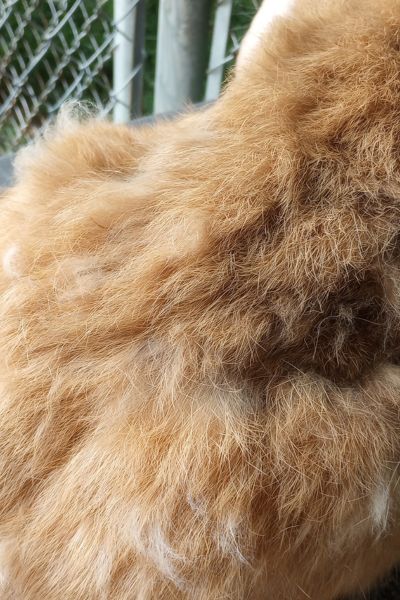
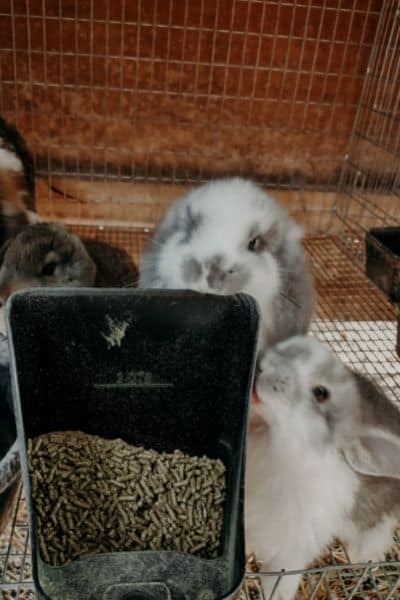
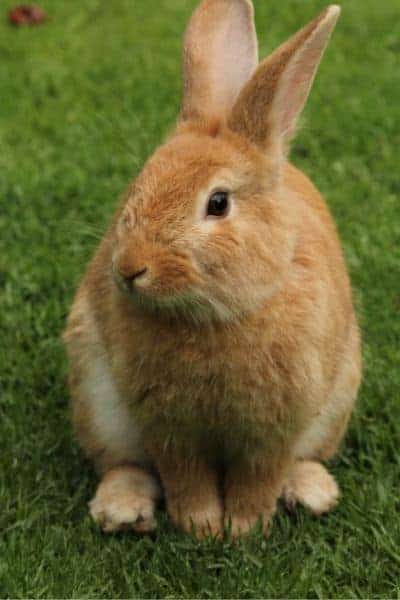
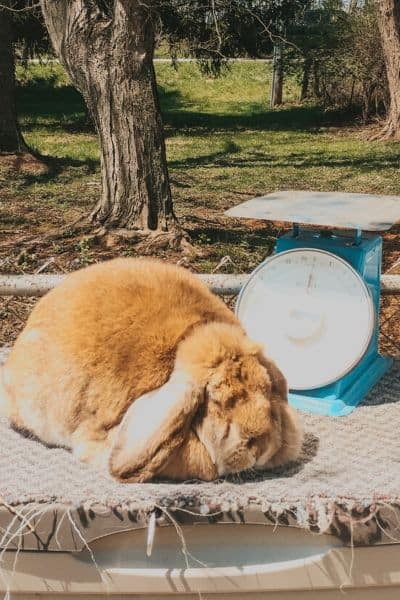
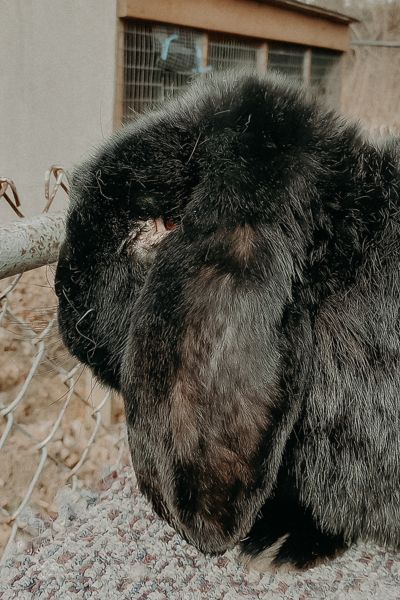
![Rabbits Do NOT Need A Companion Rabbit [here’s why]](https://leah-lynch.com/wp-content/uploads/blog-post-header-31-768x1152.jpg)